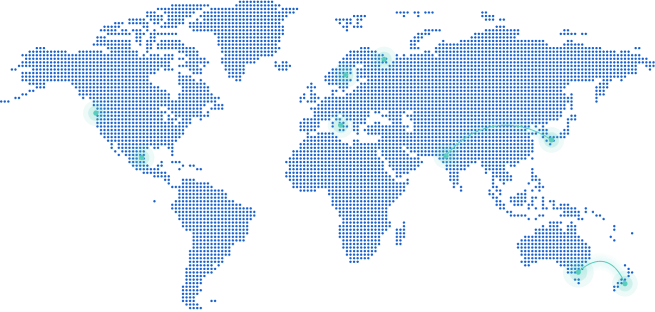Outsource to the Philippines with a Trusted Offshore Team
Top Outsourcing Services for Scalable Business Processes
Struggling to scale cost-effectively? Outsource to the Philippines and build a dedicated offshore team with iScale Solutions. Tap into top Philippines outsourcing talent, streamline business processes, and grow with a trusted provider in the Philippines.
Currency
Philippine Peso (₱)
Language
Filipino / English
Payroll cycle
Bi-weekly
Population
118.6 million
GDP
$436.6 billion
95th Ranked / Easy
Why Outsource Team in the Philippines
Outsource to the Philippines for Smart, Scalable Growth
The Philippines outsourcing industry has seen rapid growth, driven by a tech-savvy, English-speaking Filipino workforce and a supportive business environment. As one of the leading destinations for offshoring, the country continues to attract companies looking to outsource core business processes through a trusted provider in the Philippines. From startups to global enterprises, many are choosing to outsource to the Philippines and build dedicated offshore teams that align with their long-term business strategy.
Access Top 5% Filipino Talent
Hire elite Filipino professionals across tech, support, and back-office roles. Build a dedicated offshore team that rivals local hires, at a fraction of the cost.
Significant Cost Savings
Outsourcing in the Philippines slashes labor costs while boosting productivity. You get more output for your budget, without sacrificing quality or efficiency.
English-Proficient Workforce
The Philippine BPO industry is known for excellent communication. Filipino staff are fluent, customer-centric, and culturally aligned with global businesses.
Scalable, Flexible Teams
Scale up or down fast with outsourced staff tailored to your needs. Whether you’re launching a startup or expanding globally, your offshore team in the Philippines adapts with you.
Need a smarter way to scale? Discover the power of outsourcing to the Philippines.
For over a decade, we’ve helped companies outsource to the Philippines, integrating top Filipino talent into internal teams through dedicated offshore staffing solutions.
Build your offshore dream team
Top Filipino Talent You Can Outsource Today
Build a high-performing offshore team in the Philippines with access to specialized roles across industries. iScale connects you with top Filipino professionals for scalable, cost-effective growth. Whether you’re in tech, finance, or customer service, we help you outsource to the Philippines with ease.
Boost your search rankings with Filipino SEO experts who know how to optimize, audit, and grow your online presence, cost-effectively.
Build robust digital products with experienced developers from the offshore tech talent pool of the Philippine BPO industry.
From product listing to campaign management, Filipino eComm pros support online growth for startups and global brands alike.
Let’s talk! Outsource to the Philippines with confidence. Our business process outsourcing services connect you to expert Filipino talent and offshore teams, right when your business needs it most.
Flexible Outsourcing Models to Fit Your Strategy
- iScale employment contract
- Recruitment
- Administrative Management
- Payslips Management
- Performance Management
- Delivery Management
- Backup
- iScale employment contract
- Recruitment
- Administrative Management
- Payslips Management
- Performance Management
- Delivery Management
- Backup
- iScale employment contract
- Recruitment
- Administrative Management
- Payslips Management
- Performance Management
- Delivery Management
- Backup
Build your offshore dream team
Industries We Support with Filipino Talent
From product listing to campaign management, Filipino eComm pros support online growth for startups and global brands alike.
From video editing to production assistance, our outsourced staff help global media teams keep content moving around the clock.
How it works
How We Build Your Offshore Dream Team
Outsourcing doesn’t have to be complicated. At iScale, we make it easy to outsource to the Philippines by guiding you through a proven, four-step process. From defining your needs to scaling your dedicated offshore team, we handle the heavy lifting, so you can focus on business growth.
Discover
Recruit
Launch
Once hired, your offshore team in the Philippines is onboarded, equipped, and integrated with your workflow. We manage the operations, you keep full visibility.
Scale
With your outsourced staff in place, we optimize performance, add roles as needed, and ensure your business process outsourcing operation grows with you.
Business Process Outsourcing Insights

Understanding the Labor Code of the Philippines
Learn the basics of the Philippine Labor Code and understand your rights, benefits, and workplace protections.

2026 Philippines VAT on Digital Services Explained
Offering digital services in the Philippines? Here’s your no-fuss guide to VAT on digital, BIR rules, and what digital service providers and online platforms need to know in 2026.

How to Hire A Virtual Assistant in the Philippines [2025 Guide]
This guide is here to walk you through each step of the process in building a support system that’s not only reliable and efficient, but also cost-effective—by tapping into the incredible talent pool in the Philippines.
Frequently asked questions
How does internet infrastructure in the Philippines support offshore teams?
What are the working hours and time zone compatibility when outsourcing to the Philippines?
What about data privacy and security when outsourcing to the Philippines?
The Philippines enforces the Data Privacy Act (DPA), which aligns closely with global standards like GDPR. Outsourcing providers implement secure IT infrastructure, access controls, and compliance protocols to protect your data. As a trusted service provider in the Philippines, iScale ensures your business operations meet strict security benchmarks while benefiting from philippines outsourcing efficiency.
Can I start small when outsourcing and scale later?
Absolutely. One of the key benefits of outsourcing to the Philippines is flexibility. You can begin with one or two full-time employees and scale as your business needs evolve. A quality outsourcing service like iScale will help you design a scalable roadmap, allowing you to expand your offshore team without disrupting your workflow or hiring process.
How do you ensure the quality of Filipino hires for offshore roles?
At iScale, we source from the top 5% of Filipino talent. Our recruitment team rigorously vets candidates for skills, experience, and cultural fit. This includes language proficiency, role-specific tests, and simulated tasks. As a leading provider in the Philippines, our goal is to deliver outsourcing resources that perform as true extensions of your team, not just temp staff.


